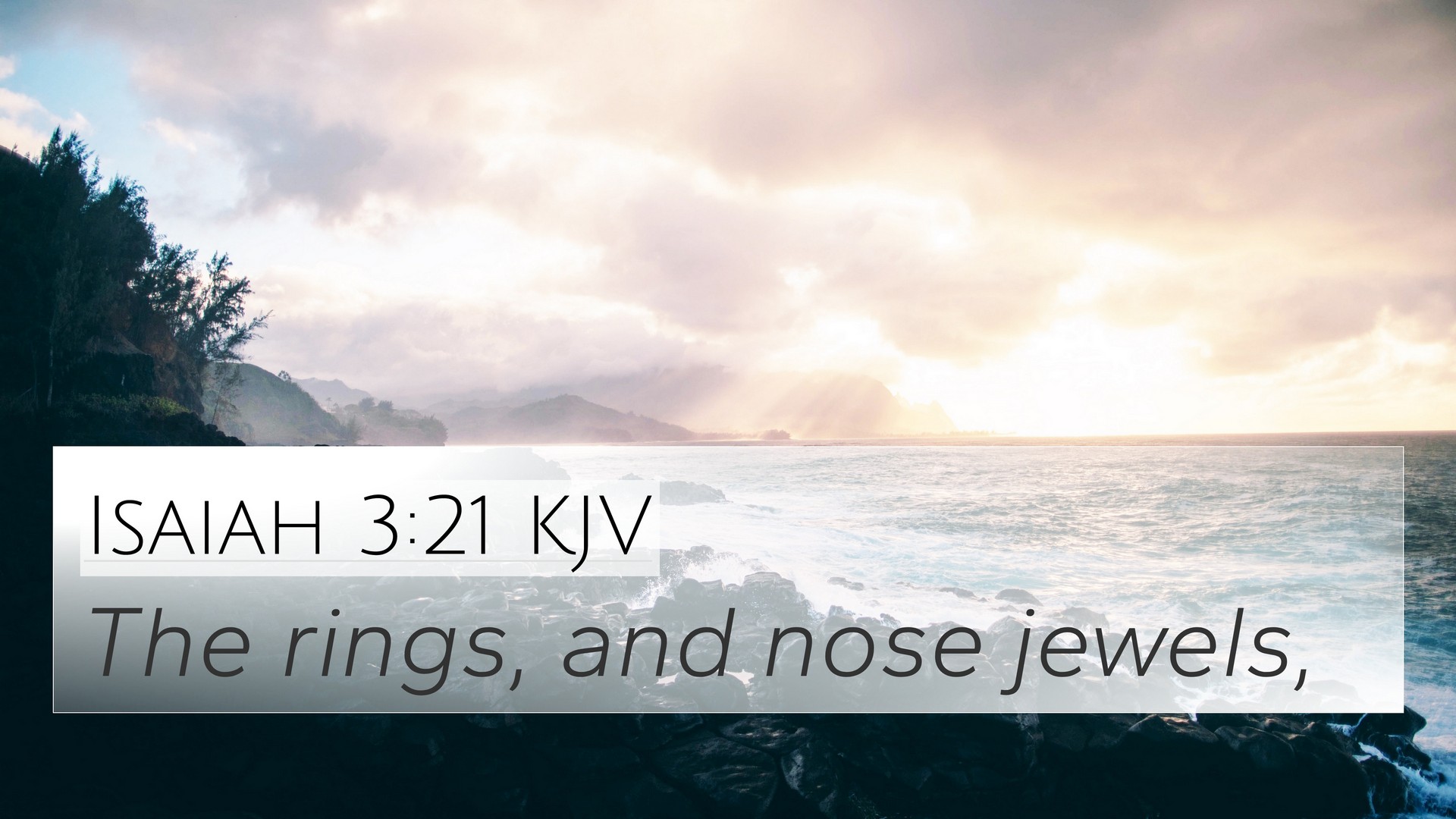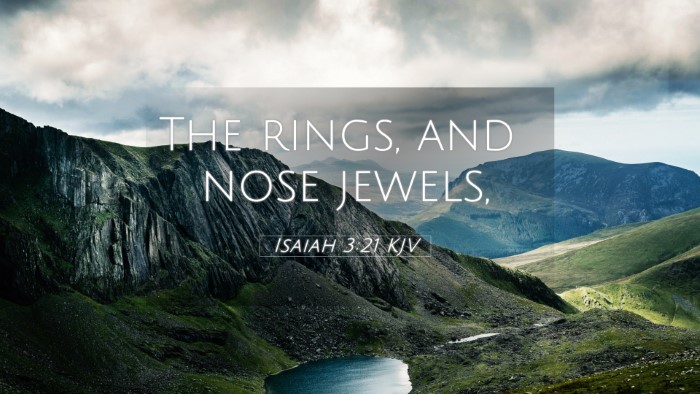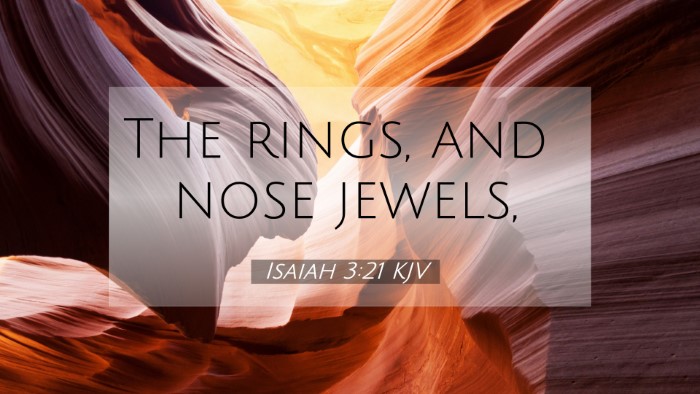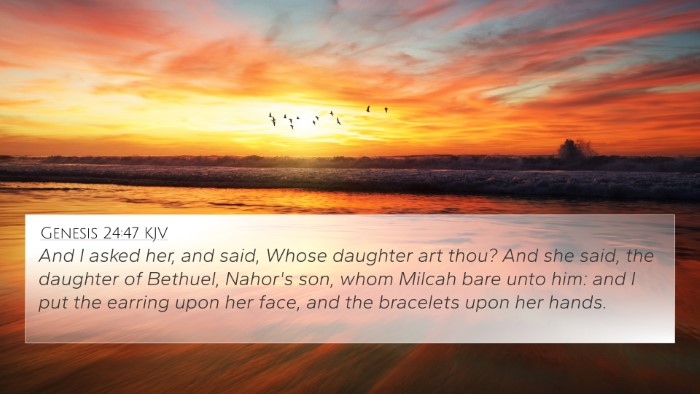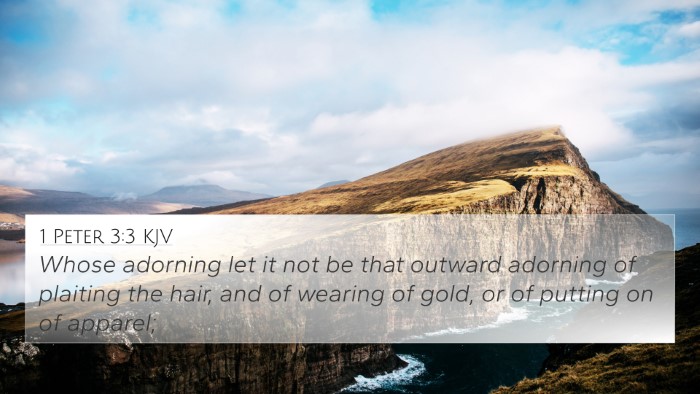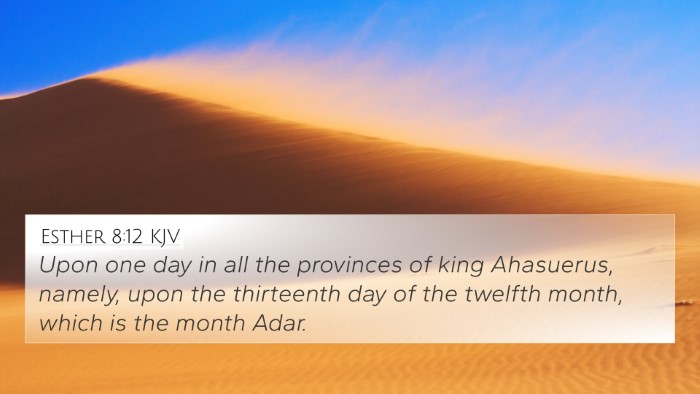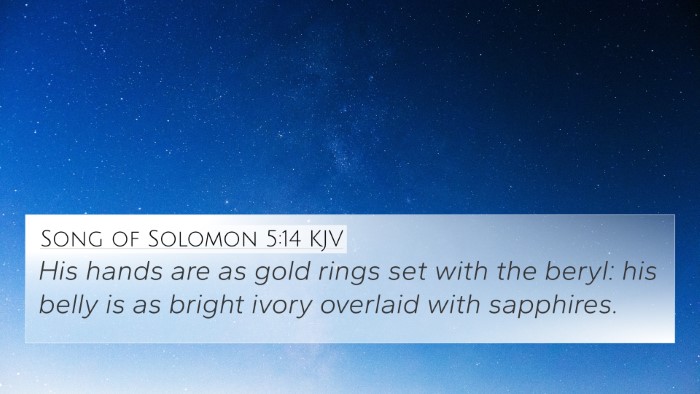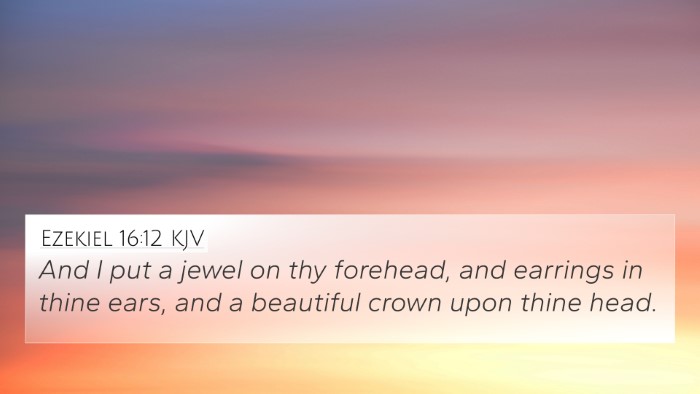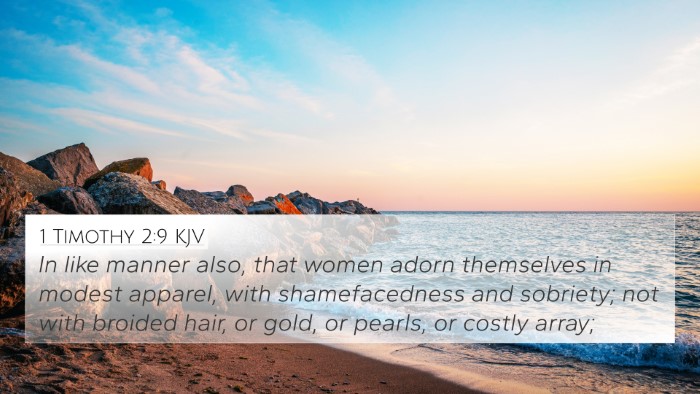Understanding Isaiah 3:21
Verse Text: "And the rings, and the ornaments of the legs, and the headbands, and the tablets, and the earrings."
Summary of Isaiah 3:21
Isaiah 3:21 is a prophetic declaration reflecting on the vanity and adornment of the women of Jerusalem, denouncing their excessive focus on external beauty and material possessions rather than internal virtues. This verse is set within a larger context where God, through the prophet Isaiah, is warning the people of Judah of impending judgment due to their moral decay and reliance on superficial appearances.
Commentary Insights
-
Matthew Henry:
Matthew Henry emphasizes the social implications of vanity, noting that these adornments symbolize a deeper issue of moral bankruptcy. The excessive emphasis on outward beauty distracts from spiritual integrity, leading to social and spiritual downfall. He points out that the Lord calls for a return to humility and righteousness rather than reliance on external decoration.
-
Albert Barnes:
Barnes interprets this verse as a portrayal of the luxuries that had become commonplace in Jerusalem. He explains that the lists of ornaments illustrate the decadence and moral corruption of society. It's a reminder that such pursuits lead to emptiness, and in times of judgment, these adornments become symbols of shame rather than pride.
-
Adam Clarke:
Clarke adds that the mention of specific ornaments suggests a critique of a culture obsessed with appearance. He notes that God does not condemn beauty itself but rather the prioritization of it over righteousness. Clarke emphasizes the importance of inner beauty, which aligns closely with the message of holistic wellbeing in faith, suggesting that a true life in God grants enduring value beyond transient aesthetics.
Cross References
Isaiah 3:21 connects with several other biblical texts which provide greater insight into its meaning:
- 1 Peter 3:3-4 - "Whose adorning let it not be that outward adorning of plaiting the hair, and of wearing of gold, or of putting on of apparel; But let it be the hidden man of the heart, in that which is not corruptible, even the ornament of a meek and quiet spirit..."
- Proverbs 31:30 - "Charm is deceitful, and beauty is vain, but a woman who fears the Lord is to be praised."
- Matthew 6:19-21 - "Do not lay up for yourselves treasures on earth, where moth and rust destroy and where thieves break in and steal..."
- James 1:10 - "But the rich, in that he is made low: because as the flower of the grass he shall pass away."
- Isaiah 3:16-24 - These verses elaborate on the outward display of adornment of the daughters of Zion and God's judgment regarding their vanity.
- Song of Solomon 4:7 - "Thou art all fair, my love; there is no spot in thee," which speaks to the value of inner beauty.
- Jeremiah 4:30 - "And when thou art spoiled, what wilt thou do? Though thou clothest thyself with crimson, though thou deckest thee with ornaments of gold…” This verse highlights the futility of reliance on external image during times of crisis.
Thematic Connections
The major themes from Isaiah 3:21 can also be seen throughout the Bible:
- External vs. Internal Value: The contrast between focusing on external adornments versus cultivating inner spiritual virtues runs throughout scripture, evident in both Old and New Testaments.
- Moral Judgment: A recurring motif is the judgment that follows excessive pride and vanity, as reflected in the prophetic literature.
- Spiritual Humility: Scriptures consistently call believers to humble themselves before God rather than adorn themselves with worldly treasures.
Conclusion
In summary, Isaiah 3:21 serves as a poignant reminder of the dangers of excessive vanity and the divine call towards recognizing the weight of inner character over external appearance. This verse, when viewed through the prism of interconnectedness with other scriptures, enriches our understanding of the value system God desires in His people. The consistent warnings and encouragements found in the Word prompt believers to prioritize spiritual depth and integrity over material embellishment.
Using Cross-References Effectively
Engaging in Bible cross-referencing can help uncover deeper meanings and connections between passages. Here are some tips:
- Utilize a Bible concordance to locate related verses.
- Participate in cross-reference Bible study to explore connections between themes effortlessly.
- Employ a Bible reference resource that outlines thematic analyses to see how different scriptures interact and support one another.
- Be intentional in comparing verses that discuss similar themes, such as vanity and humility.
Further Reflection
As you meditate on Isaiah 3:21 and its cross-references, consider the underlying truth about the heart's condition before God, and allow this understanding to transform your view of what it means to truly adorn oneself as a follower of Christ.
